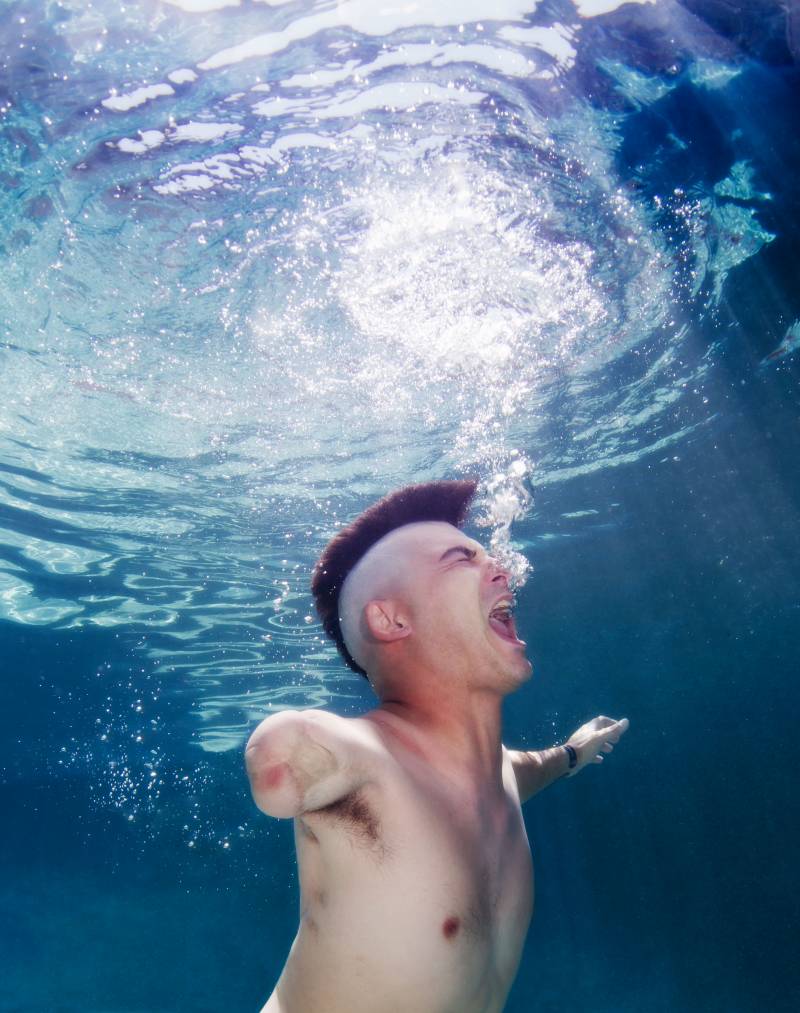
Erena Shimoda takes photos underwater. She creates majestic images of people in pools. Her subjects can be seen posing in wheelchairs, dancing with tulle, adorned in mermaid attire, or wrapped in Shibari ropes.
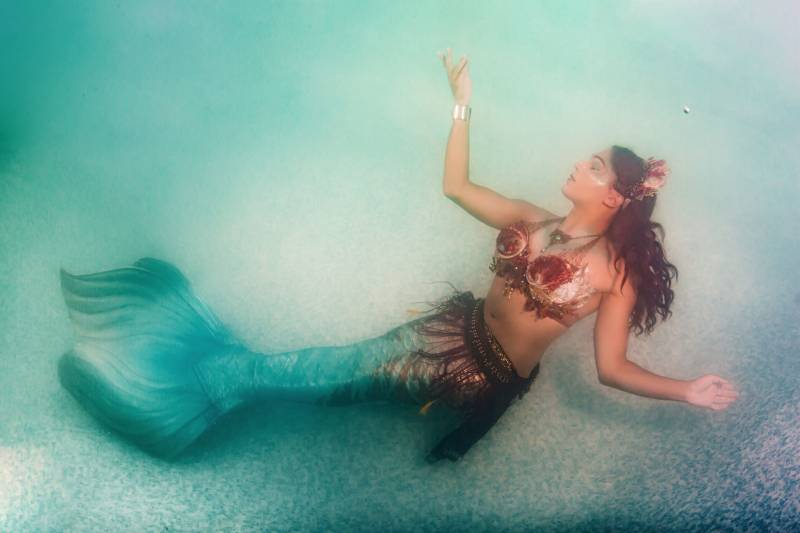
Some of her models are people who’ve lived through physical or mental trauma. Erena helps them slip into water, release their experiences, and hopefully reemerge anew. It’s a nod to religious practices around water, like baptisms in Catholicism, holy dips in India’s Ganges River and water meditations of Shintoism. Not to mention, water’s ability to make you feel good is backed up by science.
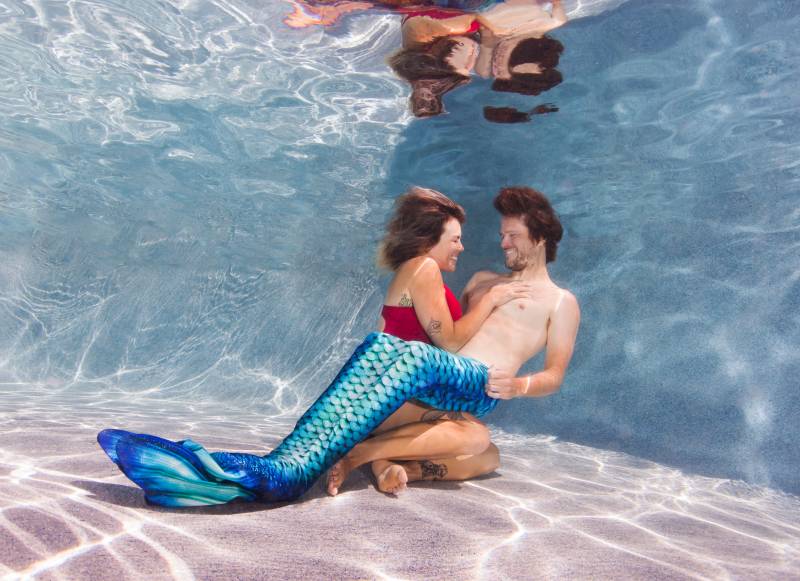
As we dive deeper into the new year, we’re talking to Erena about her journey photographing the healing power of water.

Below are some lightly edited excerpts of my conversation with Erena Shimoda.
Pen: I’ve read that you’ve also suffered trauma: a bad car accident. Working with folks who’ve endured trauma, I’m just wondering how your experiences might inform the art that you do.
Erena: I was in a car accident and I was thrown out of the car and sent to ICU by helicopter, fracturing my entire body. And I had a major brain injury. I survived, but my father was driving and he… they couldn’t save him. He was driving and wearing a seatbelt and I did not wear my seatbelt and I survived… I didn’t feel that was fair and was blaming myself for a while but at the same time I was ignoring it. I didn’t realize that was causing the deep down depression because I didn’t have time to grieve my father’s death.
Erena: For a few years, I was on medications and I was not doing better at all. I was researching what to do. I tried everything. Nothing worked except swimming and scuba diving. I think water saved my life. I became more honest with myself. I understood why I was depressed: because my father’s death. After admitting that I needed to grieve his death, I think I could just finally be myself and also I wanted to help others.
After Erena found scuba diving … she says she discovered her love for photography. And then she decided to combine her passions after a transformative volunteering experience.
Erena: So I started to also volunteer for the Look Good Feel Better Program. That is the program for cancer patients to learn how to put makeup and wigs on. Because they’re doing their chemotherapy, they lose their hair, they lose their confidence… But when they leave the class their vibe and their aura are so different, they are more positive. They want to live. They want to survive! … When I saw that, I thought, maybe I can do underwater portrait sessions with cancer survivors to give them more freedom!
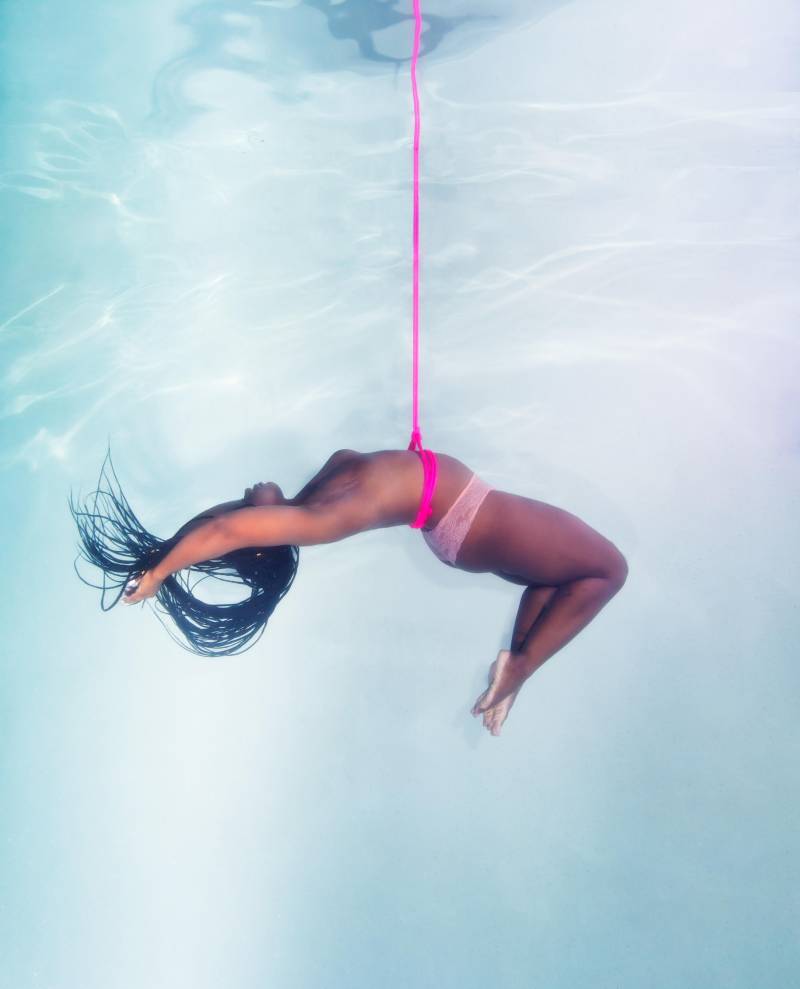
Pen: Why water? What is it about water that allows it to be transformative?
Erena: I’m from Japan originally and I’m used to getting in the bathtub to end the day. You sink in [the water] up until the shoulder level. Every day – or every night – after school, you release all the stress and let go of all the negativities that happened that day.
Pen: As you were talking about it, my shoulders sank back a little bit. My posture changed.
Erena: That water effect can be really positive… And that can happen in underwater portrait photography sessions – just letting go of nerves… You can be yourself when you’re in there.
Pen: The process of actually photographing people underwater. How do people hold their breath for long enough for you to take a photo? How does that happen?
Erena: It’s really interesting because it’s the opposite breathing practice before you go down – because usually when you go in the water, we inhale the air, right? – But when you do that, the picture is going to look like blowfish! The cheeks are blown up. So we have to do the opposite, where you have to exhale before you go down. If your lungs are like balloons, if you have too much air, you float. So if you exhale, your lungs are smaller and then you go down faster.
Pen: And I know that you have to be in tune with the person or subject of your photos…
Erena: Emotionally and psychologically I have to understand them and where they are. It’s hard underwater because we can’t talk.
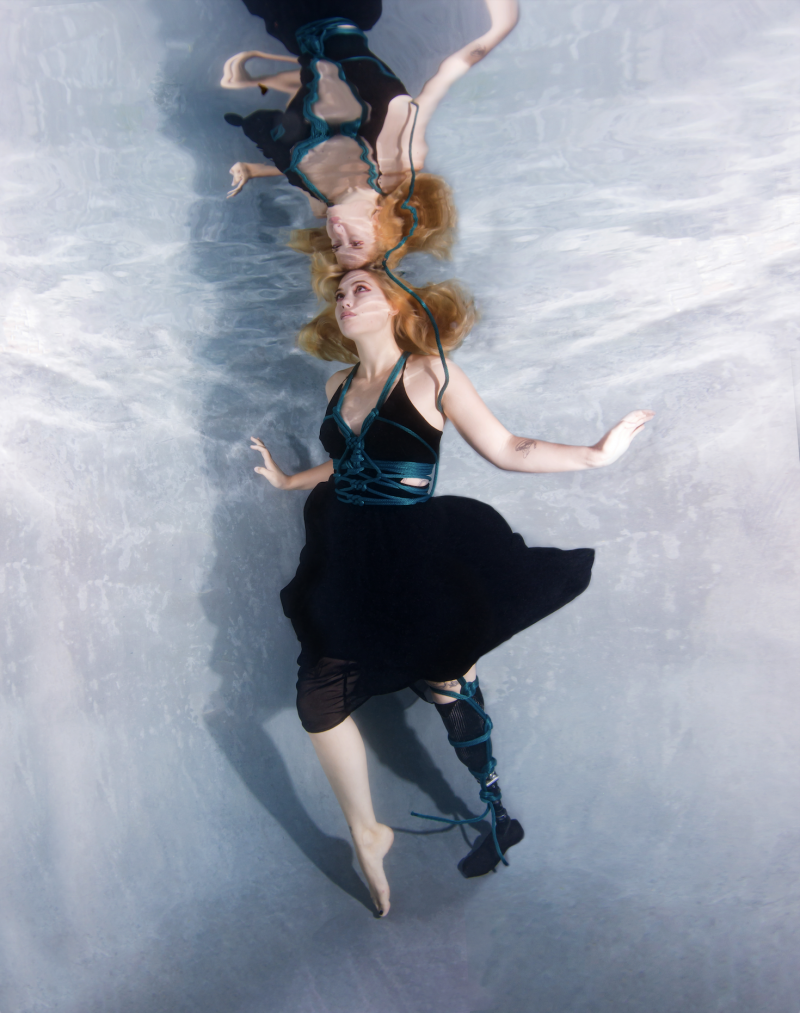
Pen: How do you coach somebody through poses and to look serene and relaxed without communication?
Erena: I’m originally from a different country, and I struggled with the language barrier. I could not speak English at all when I came here. So every time when people were talking to me, I had to guess from facial expressions and body languages. So underwater is the same thing, I can understand from their body language and facial expressions of where they are at, what they can do and what they cannot do.
Pen: You’ve been doing this project for some time now. I did this one project for 5 years interviewing older black men, called OG Told Me. After a while I just got burnt out of doing the project. And so I’m wondering for you… does this go on forever? Do you see this train ever stopping?
Erena: I think because I learn and grow every time I meet the survivors or my clients… I want to do this until I die. Yeah, I think it’s forever work as long as I can find the water.
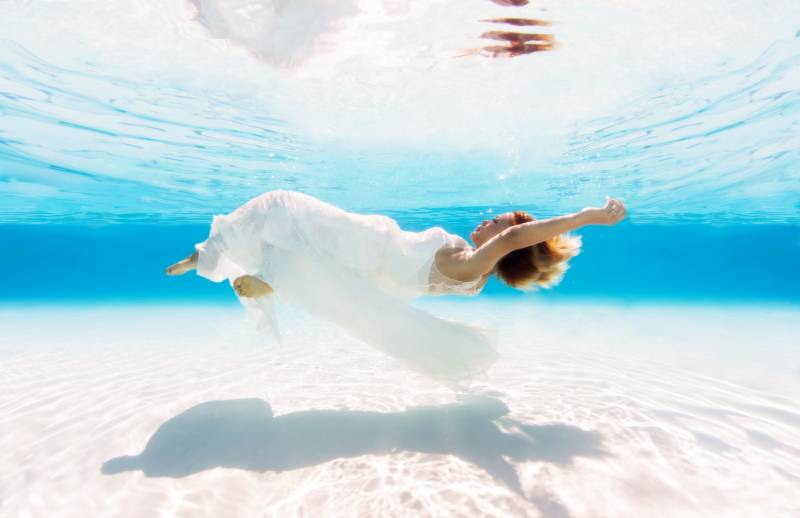
Erena is looking forward to photographing more survivors, and you can reach out to her at erena.shimoda@gmail.com.

Rightnowish is an arts and culture podcast produced at KQED. Listen to it wherever you get your podcasts or click the play button at the top of this page and subscribe to the show on NPR One, Spotify, Apple Podcasts, TuneIn, Stitcher or wherever you get your podcasts.

